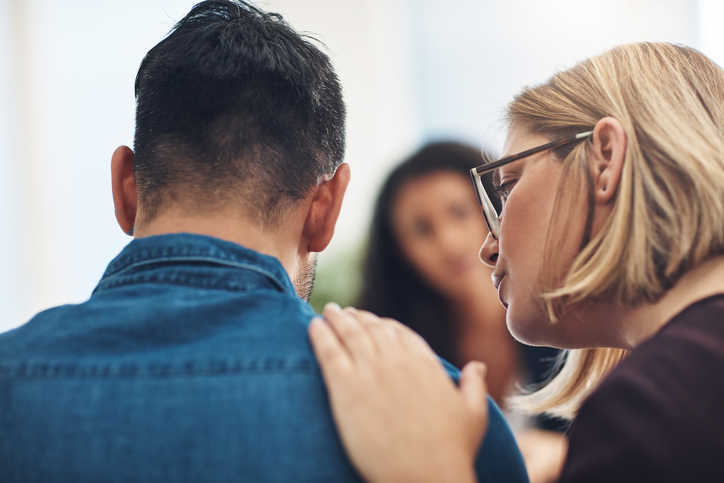Everyone, including those with developmental disabilities, deserves the opportunity to grieve a loss in healthy ways. Through providing grief resources and support, families can help their loved ones with developmental disabilities understand death and grief.
Funeral Involvement
Psychiatry of disability professors Oyepeju Raji and Sheila Hollins and learning disability specialist Ange Drinnan interviewed funeral directors for their study “How far are people with learning disabilities involved in funeral rites?” The studied posed questions about the funeral planning experiences and to what extent people with learning disabilities participated in funeral rituals.
The study found that most funeral directors didn’t have a lot of experience working with people with learning disabilities. This may be because there wasn’t a discussion about it between the family and the funeral director. Or, the funeral director wasn’t aware someone had a learning disability.
If family members with learning disabilities weren’t included in the funeral, the funeral director would have no way of knowing about them. And if they’re not at the funeral, they’re missing out on the chance to receive support from funeral professionals. They may need extra help going through a healthy grieving process and, like everyone, they need support and grief resources.
Grief Misconceptions
Two common misconceptions about people with developmental disabilities and their take on death are:
- It’s assumed that they don’t understand death.
- It’s assumed that they don’t go through a grieving process.
Attending the funeral and participating in memorial rituals can help them understand death and process their grief. Simply saying that someone died may be confusing, so they need these additional rituals to help them understand.
Grief Expressions
The ways people with developmental disabilities express their grief may be misinterpreted as emotional or behavioral problems. Although it depends on the person, sometimes behavior changes may be how they’re grieving their loss.
Some behavior changes to look out for are:
- Disrupted sleeping pattern
- Different eating habits
- Withdrawal from usual activities
- Less productivity than usual
- Complaints about pain or illness
- Overall change in their personality
It’s important to help them grieve so they don’t develop complicated grief with long-lasting emotional problems. If possible, try to avoid making major changes in their routine. Instead, gradually make changes to help them adjust.
How You Can Help
Through meaningful rituals and support from loved ones, there are many ways to help those with developmental disabilities grieve.
Some ways to help them grieve and create memorial traditions are:
- Make a special memento together.
- Take regular trips to their loved one’s gravesite.
- Have a family remembrance dinner around the dining room table.
- Show them photos of their loved one — but wait until they’ve had time to process the death.
Also, consider what memorialization methods are right for them. Could you help them create a scrapbook of their loved one? Is visiting their loved one’s grave a helpful ritual for them? Find what works best and encourage their participation.
When discussing death and grief with them, encourage them to express their feelings. For example, a family dinner may be an appropriate time to carefully explain everything to them. Or, choose a more comfortable setting, like their living room with one or two close and trusted people.
What other ways can you help loved ones with developmental disabilities grieve? Share them with us in the comments.





0 Comments